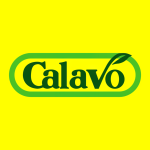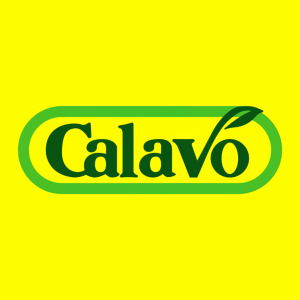Welcome to our dedicated page for Calavo Growers SEC filings (Ticker: CVGW), a comprehensive resource for investors and traders seeking official regulatory documents including 10-K annual reports, 10-Q quarterly earnings, 8-K material events, and insider trading forms.
An unexpected drought in Michoacán can move Calavo Growers’ avocado margins overnight—and those shifts show up first in the company’s SEC filings. Whether you track crop-yield risk, prepared-foods growth, or seasonal cash-flow swings, every detail is filed on EDGAR.
Here’s where you’ll find it all, from the Calavo Growers quarterly earnings report 10-Q filing that breaks down per-pound selling prices to the Calavo Growers annual report 10-K simplified with segment-level cost disclosures. Want to know when executives buy stock after a strong harvest? Our feed surfaces Calavo Growers insider trading Form 4 transactions in real-time. Material supply-chain updates? The latest Calavo Growers 8-K material events explained are one click away.
Stock Titan’s AI turns page-heavy reports into clear takeaways. Compare quarters, highlight avocado volume trends, and flag debt-covenant changes—all without skimming hundreds of footnotes. Our platform offers:
- AI-powered summaries that make understanding Calavo Growers SEC documents with AI fast and accurate
- Instant alerts for every Calavo Growers Form 4 insider transactions real-time
- Side-by-side Calavo Growers earnings report filing analysis across years
- Direct links to the proxy for Calavo Growers executive stock transactions Form 4 and Calavo Growers proxy statement executive compensation
From crop-price sensitivity tables to guacamole plant capacity expansions, our coverage spans every filing type the moment it hits EDGAR. Spend less time decoding filings and more time deciding whether seasonal demand—or insider sentiment—makes Calavo the right pick for your portfolio.
Calavo Growers, Inc. reports that on
Calavo Growers, Inc. detailed a retirement agreement with former President and Chief Executive Officer Lecil E. Cole and provided an update on its strategic review.
Effective
The agreement also grants Calavo a right of first offer to purchase all avocados grown by Cole or his affiliates at prices consistent with the company’s quote sheet for a defined period. Separately, a Special Transactions Committee continues to review strategic alternatives, which may or may not result in a transaction. If no definitive agreement is reached, the board will consider returning capital to shareholders through a share repurchase or special dividend.
Calavo Growers, Inc. reported that Mike Browne will retire from his role as Executive Vice President, Sales and Operations, effective December 1, 2025. This marks a leadership transition in a key operational and commercial position.
The company also confirmed that its previously announced review of a non-binding, indicative proposal to acquire all outstanding shares of the company, along with other strategic alternatives, remains ongoing. A Special Transactions Committee of the Board is leading this process, which began after the proposal was announced on June 11, 2025, and may or may not result in a transaction. The company plans to provide further updates only if a specific development requires disclosure or the evaluation of alternatives concludes.
Calavo Growers (CVGW) announced a leadership transition: President and CEO Lee E. Cole will retire on December 8, 2025, and the Board appointed B. John Lindeman as President and CEO effective the same date. Lindeman, age 57, is a current director and former CFO (2015–2020), and most recently served as CEO of Hydrofarm.
Lindeman’s offer includes a $800,000 base salary; an annual bonus opportunity of 50%–200% of salary tied to Board‑set financial targets; fully vested awards at commencement of stock options to purchase 25,000 shares and restricted stock equal to $500,000 divided by the prior business day’s closing price; plus additional options for 75,000 shares vesting in equal annual tranches over three years. He will receive a $450,000 relocation allowance, standard benefits and indemnification, severance of one year’s base salary upon certain terminations, and change‑in‑control benefits under the 2020 Equity Incentive Plan plus one year of base salary and a bonus equal to 200% of base salary. He will continue to serve as a director.
Calavo Growers, Inc. (CVGW) reports mixed third-quarter results across its Fresh and Prepared segments. Avocado sales declined sequentially, down $4.3 million (3%) year-over-year due to a 5% volume decline despite a 2% higher average selling price. Tomato sales fell sharply, down $3.8 million (40%) driven by a 27% volume drop and an imposed ~17% anti-dumping duty after the U.S. ended the 2019 Tomato Suspension Agreement. For the nine months, avocado sales rose $44.6 million (12%) driven by a 22% increase in average price, partially offset by a 9% volume decline. The company recorded approximately $4.2 million of discrete costs tied to an FDA detention hold, which reduced avocado profitability. Calavo disclosed material Mexican tax audit exposures: an assessed amount adjusted for inflation to ~3.0 billion MXN (approx. $160 million) plus ~118 million MXN (~$6.3 million) in employee profit-sharing liabilities, and ongoing disputes with Mexican tax authorities. Related-party activity includes advances to Don Memo and purchases from Avocado de Jalisco, with advances and payables detailed in the filing.


